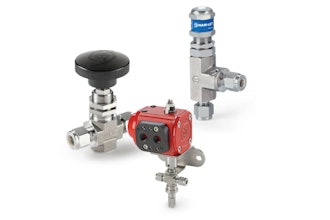
As Donald Trump prepares to enter the White House, distributors across the country are wondering what his election — and the Republican Party’s hold on Congress — may mean for their bottom line. Though no tax legislation has been formally proposed, there are tax plans on the table from the House Republicans and the president-elect that offer hints at what distributors may be able to expect in the coming year. Of course, nothing is final yet.
Tax reform on the horizon
House Republicans have worked somewhat quietly over the past several years on a tax reform package that they planned to introduce next year, although its fate depended upon the outcome of the election. With Trump heading to the White House and Republicans retaining control of Congress, the chances of enacting tax reform next year have significantly increased.
Trump released a tax proposal last year, and House Republicans also unveiled a tax reform plan earlier this year (Senate Republicans have not yet released a plan). There are some similarities in the Trump and the House GOP plans. For example, both plans lower the corporate tax rate to near the same level and offer similar individual tax brackets. As a result, these plans could serve as blueprints for tax reform in 2017, and there are several key provisions that could impact distributors.
Tax rates: The nation’s corporate tax rates are among the highest in the world, and many in Congress seek to lower the rates in hopes of making U.S.-based companies more competitive. Under a tax reform plan, the top corporate tax rate could be reduced from 35 percent to somewhere in the range of 15-20 percent.
Many closely held businesses, including many distributors and wholesalers, are set up as pass-through entities (S-corporation and LLCs/partnerships) and taxed at the top individual rate. While both the House GOP and President-elect Trump’s plans call for lower taxes on individuals, they would still leave a large gap between the top individual rate (both plans aim to lower the top rate from approximately 40 percent to 33 percent) and the proposed corporate rates of 15-20 percent. To address this discrepancy, both of these tax proposals include a special pass-through tax rate of approximately 15-25 percent.
However, the details of this special taxing regime for pass-through entities are not yet spelled out, and it could end up creating complexities for distributors. No matter how it plays out, whether a distributor operates as a C-corporation or as a pass-through entity, it will likely see a reduction in its tax liability under any tax reform plan.
Entity selection: Even though tax rate changes are likely to result in lower overall taxes, a distributor may want to evaluate whether it should be taxed as a C-corporation or as a pass-through entity. Once all the tax rates (ordinary rates, pass-through rates, capital gains and dividends, etc.) are finalized, these can be applied to a distributor’s unique situation. The company can then perform an analysis to determine what entity status is most favorable. In some cases, it might make sense for a distributor now taxed as an S-corporation to switch over to a C-corporation (or vice versa). The key is for a company to be prepared to conduct this analysis and not to assume it will retain the status it presently uses.
Capex: One of the more intriguing tax proposals that could impact distributors is the tax treatment for capital expenditures (capex). Both tax plans would allow companies to fully deduct these amounts currently instead of depreciating them over a number of years. This might also include real estate (but not land), which is often a major expenditure for distributors. In many cases, a distributor’s real estate is housed in a separate entity (say an LLC), and if expensing provisions are adopted, distributors will need to evaluate closely how these new rules work and how they should handle any future capex expenditures.
Interest: As part of permitting a full expensing deduction of capex items, tax reform legislation would likely impose limitations on interest expense deductions. Therefore, a company would possibly not be able to finance a capex addition and deduct both the cost of the property and the interest on the borrowing. Again, as more details emerge on the interest limitations, distributors can evaluate how best to finance their business and capex items.
LIFO inventory: Many distributors have used the LIFO (“last-in, first-out”) method of inventory for their products. The LIFO method generates tax savings for a distributor that has experienced rising prices in its goods over the years. However, a distributor with inventory prices that are flat or falling would likely not adopt the LIFO method. While many tax incentives and special credits may be curtailed as part of overall tax reform, Congress has expressed support for the LIFO method. Distributors should monitor this closely to see if LIFO is retained.
 Jim Brandenburg, Tax Partner at Sikich LLP
Jim Brandenburg, Tax Partner at Sikich LLPPrepare for changes ahead
Nothing is final now, and all of the tax proposals in play could be revised or scrapped, and other, new changes could be proposed. The effective dates and transition rules of these tax changes are important, and these details also need to be ironed out. However, keep in mind that once the tax reform process gets started, things could move quickly. Therefore, distributors should keep a close eye on potential legislation and work with their tax advisers to understand the implications as measures are proposed and enacted. The distributors that take a proactive approach to educating themselves about this looming tax legislation will be the ones best equipped to capitalize on future tax changes.
Jim Brandenburg, CPA, MST, is a tax partner at Sikich LLP, a professional services firm.























